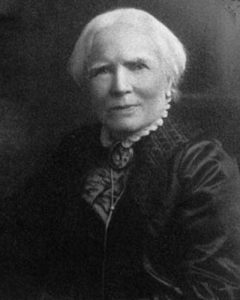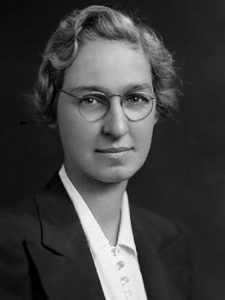March Is Womens History Month
At New York Medicine Doctors, our team can help diagnose and treat some of the most common women’s health-related conditions!

Celebrate Women's History month With These Healthy Tips:

Schedule Regular Physical Examinations
Even if you feel healthy, it is still necessary to visit your primary care physician regularly to catch any irregularities in their earliest, most treatable stages.
- Pap test and pelvic exam – Nearly 80% of women diagnosed with invasive cervical cancer failed to have a Pap smear in the previous five years, perhaps missing early signs of the disease and the opportunity to eradicate it before it spread. At Elite Gynecology, Dr. Guichard and Dr. McBride use Pap smears to detect cellular changes that may indicate abnormal cell growth, a precursor to cervical cancer.
- Breast Cancer Screening– Did you know that in the United States, breast cancer is the second leading cause of cancer death in women? At Elite Gynecology, we provide thorough breast cancer screenings, reducing their risk of developing this deadly disease.
- Blood pressure screening – After age 20, women should have their blood pressure checked at least once every two years. At NYMD Center, our Internal Medicine Doctor, Dr. Tun, provides a thorough physical to be sure your blood pressure is in a healthy range. We also offer Connected Care Home Health Monitoring to track your blood pressure from the comfort of your home.
- Vaccinations – After age 19, women will require a tetanus booster every 10 years. Also, if attending college, women should talk to their doctor about getting a meningococcal vaccine. NYMD Center doctors can take care of all of your necessary vaccinations.
- Other risk factors – Depending on personal risk factors, our Internal Medicine physician at NYMD can determine if screening for chronic disease is necessary, as well as sexually transmitted diseases, alcohol abuse and skin cancer.
Get The Right Nutrients
Researchers at Brown University Medical School found that many women, including most young women ages 20-35, eat more fast food than they did in their teens, and therefore are missing out on key nutrients in their diets. In addition to eating a variety of nutrient-rich foods, women should make sure to get enough:
- Protein – Women need protein to keep full and build muscle, but 50 percent of women ages 18-50 don’t know if they are getting enough. To get the minimum 60 to 70 grams of protein each day, eat lean meats, eggs, beans and low-fat dairy.
- Potassium – Potassium promotes a healthy heart, but most women get less than half the recommended amount in their diets. Get the potassium you need by having two cups of fruit and two and a half cups of veggies daily.
- Omega-3 fats – Women are particularly vulnerable to feelings of depression in their 20s. The omega-3 fats found in foods like salmon and tuna can help boost serotonin in your brain and make you feel happier.
Stay Active
In combination with maintaining a balanced diet, staying active is key to keeping a healthy weight and preventing a number of chronic health conditions from occurring on down the line. Studies show women who are active may reduce their risk of breast cancer by 37 percent, osteoporosis by 45 percent and heart disease by 14 percent. For optimal health, strive to engage in at least 2.5 hours of moderate-intensity aerobic activity each week. Include a variety of workouts to exercise a full range of muscles, such as yoga, walking, running, high-impact weight-bearing exercises and resistance exercises.
Kick Unhealthy Habits
Did you know more women die from lung cancer than breast cancer? Smoking is the main cause of lung cancer, and nearly 20 percent of women age 25 to 44 smoke. Smoking raises risk for heart disease and stroke, and can even negatively affect your reproductive health and the safety of your pregnancy. If you don’t already smoke, don’t start. If you do smoke, you aren’t alone. In fact, 70 percent of women who smoke want to quit. Talk to your physician about smoking cessation aids and support groups.
Get Enough Sleep
While it may feel unavoidable at times, lack of sleep can affect a woman’s health and wellness in the short- and long-term. There are many complex factors that affect how women sleep, such as life events, bad sleep habits and hormonal changes. Sleep deprivation is linked to a number of chronic health conditions, including hypertension, cardiovascular disease, depression, diabetes, obesity and cancer. Set yourself up for a healthier future by striving to get the National Health Institute of Health’s suggested 7 to 8 hours of sleep for adults each night.
More Tips For A Healthier Future!
March is a great time to commemorate the achievements of women in medicine and the progress they have made in medical science.

 Kicking off the list, Elizabeth Blackwell is perhaps the most well-known woman in medicine. Credited with being the first-ever American woman to be awarded a medical degree, Elizabeth Blackwell championed the participation of women in the medical profession and ultimately opened her own medical college for women.
Kicking off the list, Elizabeth Blackwell is perhaps the most well-known woman in medicine. Credited with being the first-ever American woman to be awarded a medical degree, Elizabeth Blackwell championed the participation of women in the medical profession and ultimately opened her own medical college for women. “It’s not easy to be a pioneer- but, oh, it is fascinating! I would not trade one moment, even the worst moment, for all the riches in the world.”
 Rebecca Lee Crumpler challenged the prejudice that prevented African Americans from pursuing careers in medicine. Graduating in 1864 from New England Female Medical College, Rebecca Lee Crumpler was the first African-American woman to earn a medical degree in the United States. Following the Civil War, Crumpler worked tirelessly to provide medical care for freed slaves.
Rebecca Lee Crumpler challenged the prejudice that prevented African Americans from pursuing careers in medicine. Graduating in 1864 from New England Female Medical College, Rebecca Lee Crumpler was the first African-American woman to earn a medical degree in the United States. Following the Civil War, Crumpler worked tirelessly to provide medical care for freed slaves.“I early conceived a liking for, and sought every opportunity to, relieve the sufferings of others.”
 Virginia Apgar was one of very few women admitted to Columbia University College of Physicians and Surgeons in the 1930’s. She initially trained as a surgeon, but shifted her work to anesthesiology, a new field at the time that offered the opportunity to do groundbreaking work. In 1949, she became the first woman to hold a full professorship at Columbia..
Virginia Apgar was one of very few women admitted to Columbia University College of Physicians and Surgeons in the 1930’s. She initially trained as a surgeon, but shifted her work to anesthesiology, a new field at the time that offered the opportunity to do groundbreaking work. In 1949, she became the first woman to hold a full professorship at Columbia..“Women are liberated from the time they leave the womb.”
 Gertrude Elion was an American pharmacologist and biochemist. Honored for her work in the field of treating diseases, Elion went on to share the 1988 Nobel Prize in Physiology & Medicine for her innovative methods for developing drugs used to treat serious diseases. This new method focused on understanding the target of the drug rather than simply using trial and error.
Gertrude Elion was an American pharmacologist and biochemist. Honored for her work in the field of treating diseases, Elion went on to share the 1988 Nobel Prize in Physiology & Medicine for her innovative methods for developing drugs used to treat serious diseases. This new method focused on understanding the target of the drug rather than simply using trial and error.“It’s amazing how much you can accomplish when you don’t care who gets the credit. The Nobel Prize is fine, but the drugs I’ve developed are rewards in themselves”
 As an American Cancer Society Professor since 1995, Dr. King studies human genetics and complex traits. Her contributions to medicine include understanding the genetic susceptibility of breast cancer and identifying the BRCA1 gene, demonstrating that humans and chimpanzees are 99% genetically identical, and using genomic sequencing to identify victims of human rights abuse such as illegal adoption. Her work involves studying the interaction of genetics and environmental influences in various diseases such as ovarian cancer, inherited deafness, schizophrenia, HIV, lupus and rheumatoid arthritis.
As an American Cancer Society Professor since 1995, Dr. King studies human genetics and complex traits. Her contributions to medicine include understanding the genetic susceptibility of breast cancer and identifying the BRCA1 gene, demonstrating that humans and chimpanzees are 99% genetically identical, and using genomic sequencing to identify victims of human rights abuse such as illegal adoption. Her work involves studying the interaction of genetics and environmental influences in various diseases such as ovarian cancer, inherited deafness, schizophrenia, HIV, lupus and rheumatoid arthritis.“I think there are two keys to being creatively productive. One is not being daunted by one’s fear of failure. The second is sheer perseverance.”
While these women all had a massive impact on medicine around the world, there are plenty of other female scientists, activists, and doctors who have made strong contributions to the medical field. While breaking societal and gender expectations for their era, these women have paved the way for others to follow and continue leaving their mark on medicine. Thousands of lives have been saved and will continue to be saved as a result of the dedication and hard work of these women. Today, America remains a leader in medical research thanks to their dedication to innovation. Therefore, this National Women’s History Month we honor their multiple accomplishments and contributions.
Where To Find Us
Rego Park
© Copyright New York Medicine Doctors. All Rights Reserved.



